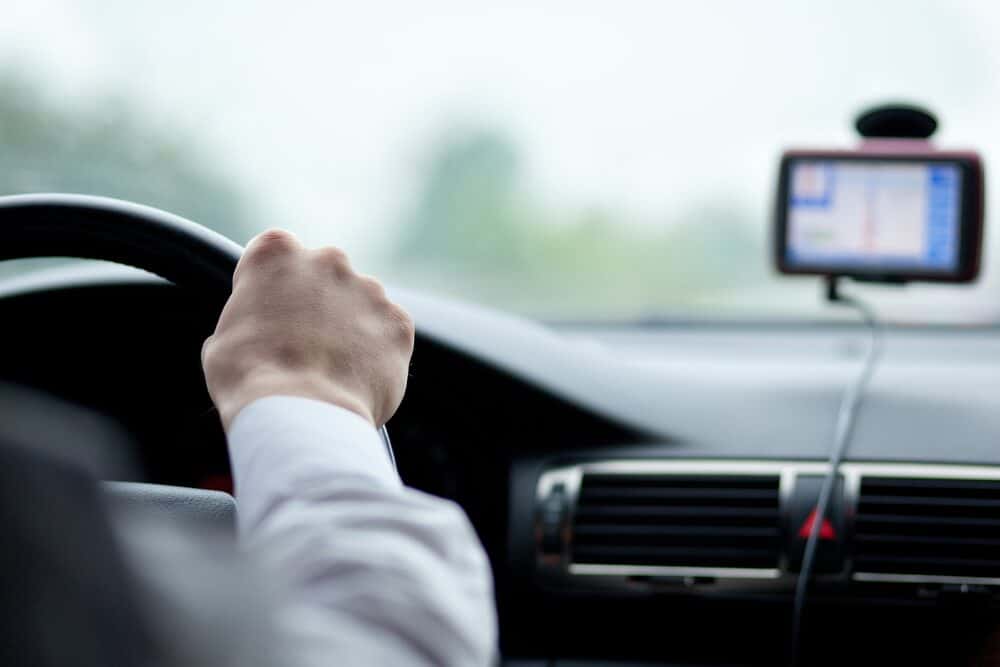Ride-sharing services like Uber and Lyft have recently become extremely popular across Texas. Their convenience and low prices make them an attractive alternative to traditional taxis for many people. However, the growing prevalence of ride-sharing also leads to increased accidents involving Uber and Lyft vehicles in Texas.
If you have suffered injuries in an accident with an Uber or Lyft driver, you may be wondering if you can sue the ride-share company directly. Before deciding how to proceed, there are a few key things to understand about how to sue uber, liability and legal recourse. Call us at 972-682-9700 for a comprehensive legal consultation, or visit Oberg Law to learn more about how we can help you get the justice and compensation you’re entitled to. Take the first step today – we’re here to support you every step of the way.

Am I Limited to Suing Only the Ride-Share Driver?
The ride-share driver will likely bear liability if they were at fault for causing the accident that resulted in your injuries. However, that does not necessarily mean the driver is the only party you can take legal action against.
Ride-sharing companies like Uber and Lyft have complex corporate structures and insurance policies intended to limit their liability. However, an experienced personal injury attorney in Texas may still find ways to argue successfully that Uber or Lyft shares responsibility for your damages.
This is why it is essential to consult with a lawyer before settling for only suing the individual driver. There may be avenues to pursue compensation from deeper corporate pockets as well.
Does Uber and Lyft’s Corporate Structure Protect Them from Liability?
Uber and Lyft’s business models classify their drivers as independent contractors rather than employees. On the most basic level, this classification attempts to absolve the companies of liability for damages their drivers cause.
However, simply labeling drivers as contractors does not eliminate the potential for suing Uber or Lyft successfully. Other factors like the degree of control Uber/Lyft exerts over drivers could persuade a court that the company shares liability based on agency principles or apparent authority theories.
The complexity of these issues means having an Uber accident lawyer examine your case closely is wise. They can assess if there are convincing angles to argue that Uber or Lyft bears responsibility for your injuries despite the contractor classification.
What about the Ride-Share Company’s Insurance Coverage?
In addition to their corporate structure, Uber and Lyft rely heavily on insurance policies and coverage limitations when denying liability for accidents their drivers cause.
All ride-sharing services now have some form of insurance that applies during different phases of operations:
-
Period 1 – App Open: Covers the driver from when they turn on the ride-share app but have yet to accept a trip request.
-
Period 2 – Trip Accepted: Provides coverage from when the driver gets a ride request until the passenger is dropped off.
-
Period 3 – Between Trips: This applies when the driver has finished one ride but has yet to accept another request via the app.
The coverage limits vary among the periods. Uber and Lyft provide the highest coverage limits once a driver has accepted a trip because that is when the passenger is most vulnerable to an accident. During Periods 1 and 3, ride-share insurance coverage drops dramatically when no passenger exists.
These insurance gaps are designed to shield the companies from significant liability. But personal injury lawyers in Texas are sometimes successful in arguing that fuller coverage should apply if certain factors were present or that Uber/Lyft should otherwise bear responsibility despite coverage limits.
Again, reviewing your particular accident circumstances closely with qualified legal counsel is crucial when considering whether Uber or Lyft has viable liability.
Can Drivers Be Held Personally Liable?
Even if Uber and Lyft avoid responsibility themselves, individual drivers can still face liability for causing accidents that injure passengers or other motorists. Ride-share drivers must carry a minimum state-required liability insurance on their auto policies.
Suppose those coverage limits fail to fully compensate all victims and damages from an accident the ride-share driver caused. In that case, additional assets and resources the driver personally owns may come into play. This is another avenue where having an attorney represent your interests can prove highly advantageous.
They will know how to access broader sources of compensation through aggressive negotiation, legal demand tactics, and the pursuit of court judgments if warranted. Tapping multiple liability streams from corporate entities and individual drivers is often required to achieve fair and full restitution, depending on the severity of your injuries and losses.
Critical Questions Your Attorney Can Answer: How to Sue Uber
These are just some preliminary issues regarding legal liability in ride-sharing service accidents. An attorney can guide several other important questions that apply to your unique case, such as:
-
Were Uber/Lyft’s insurance coverage or limits inadequate based on my losses?
-
Does labeling drivers as contractors genuinely eliminate Uber/Lyft’s responsibility here based on legal principles of agency or apparent authority?
-
Is the driver’s coverage insufficient to fully compensate for my damages?
-
Are there persuasive arguments my attorney could make to compel Uber/Lyft to compensate me themselves, regardless of their denial of liability or insurance limitations?
-
If Uber/Lyft refuses any settlement offer, what litigation approach should we take? Sue driver, Uber or Lyft first? Join them together in one lawsuit? File separate lawsuits?
Having meaningful answers to questions like these from a qualified personal injury attorney in Texas is invaluable after being injured by a ride-sharing service accident. Do not leave money on the table or struggle to pay for mounting medical bills because you failed to examine ALL potential liability sources and legal options thoroughly.
Could Recent Changes in Ride-Share Services’ Policies Impact My Case?
As ride-sharing continues proliferating, some companies have faced pressure to revisit their liability models and strengthen protections for passengers and the public. Understanding how these changes could apply to incidents in the past can enhance legal arguments for obtaining fair compensation today.
For example, Uber adjusted their insurance structure in several states in 2020 and 2021 to address previous gaps or deficiencies. Lyft enacted an insurance policy change in 2022 related to uninsured/underinsured motorist coverage during Periods 1 and 2 operations.
Suppose your accident preceded some of these voluntary enhancements by either company. In that case, it opens the door for a resourceful lawyer to argue liability based on inadequate policies that have been improved, implicitly acknowledging they were insufficient before.
Staying current on the evolving legal landscape around ride-sharing and how it relates to past precedent is another benefit an experienced attorney can provide if you or a loved one has been injured by an Uber or Lyft driver anywhere in Texas.
FAQs: Suing Uber/Lyft for Injuries in Texas
Below are answers to some frequently asked questions accident victims have about legal liability and recourse after getting injured by a ride-share vehicle in Texas:
-
What Damages Can I Seek Compensation For If I Sue Uber Or Lyft?
Common damages pursued include current and future medical expenses, lost wages due to missing work during recovery, pain/suffering, vehicle repair or replacement costs, long-term care needs, and other hardships arising from your injuries. An attorney will quantify all categories to demand a settlement or sue at-fault parties.
-
How Much Time Do I Have To Take Legal Action In Texas?
Per the Texas statute of limitations, you usually have two (2) years from the date of a ride-share accident to settle your case or file a personal injury lawsuit against the driver, Uber/Lyft, or any other responsible parties. Missing this deadline forfeits your claim, so prompt action is essential.
-
Is Suing Uber/Lyft Instead Of The Driver More Accessible?
Not necessarily; Uber and Lyft vigorously fight liability through their corporate structure protections and insurance limitations. But their deeper resources also mean larger potential payouts, which is why skilled personal injury lawyers examine ALL viable compensation sources for clients.
-
How Common Are Uber/Lyft Accidents In Texas?
As of 2020, TX Department of Transportation data shows over 20,000 crashes annually involving taxis, limousines, vans, or other commercial vehicles—including ride-sharing services- which fall into the definitions tracked. Numbers will likely continue rising, given Uber and Lyft’s rapid growth in Texas metropolitan areas.
-
Is Hiring An Attorney Required, Or Can I Represent Myself?
While not legally mandatory, retaining qualified counsel is highly advisable, considering the legal complexities in these cases. Relying on insurance adjusters or trying a “DIY” approach often results in fewer settlements or unsuccessful cases an experienced attorney could win. Representing yourself against Uber/Lyft’s legal army is an uphill battle. Most individuals will need help to wage effectively compared to lawyers with resources and skill set in this unique realm. Paying attorney fees upfront is a wise investment to maximize compensation.
Connect with a Personal Injury Lawyer Serving Texas
Suffering debilitating injuries in a motor vehicle crash is traumatic enough without having to fight enormous ride-sharing corporations for fair compensation. At Oberg Law Office, [our attorneys have successfully litigated complex liability cases in Texas against negligent ride-share drivers and the parent companies when warranted. We have recovered millions of dollars for clients by leaving no stone unturned when identifying ALL viable sources of legal responsibility after these accidents.
Reach out today to discuss your situation in a no-obligation consultation. Call us at 972-682-9700 or visit Oberg Law to schedule your consultation today. Let us take the burden off your shoulders so you can focus on healing

 972-682-9700
972-682-9700



